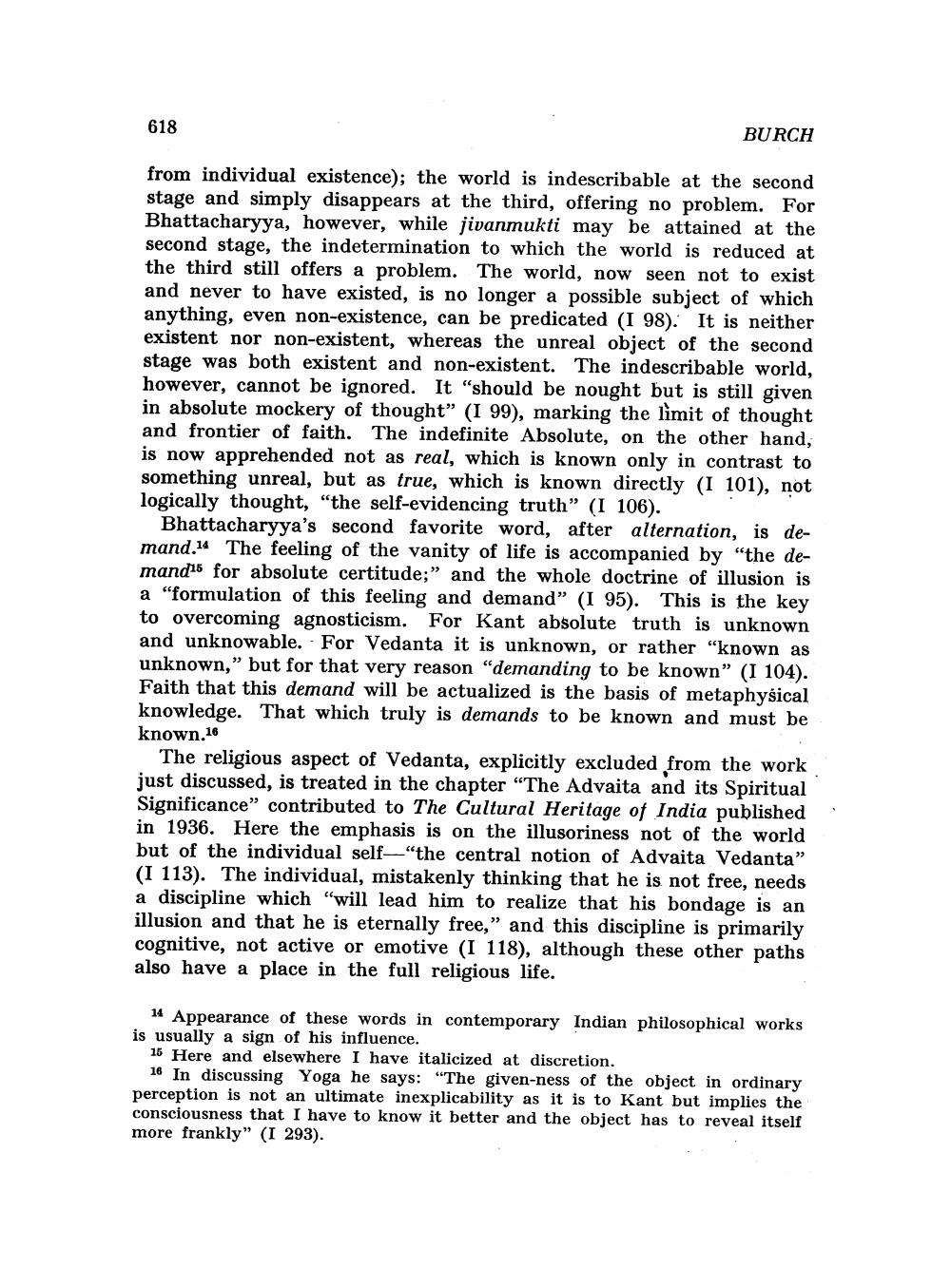________________
618
BURCH
from individual existence); the world is indescribable at the second stage and simply disappears at the third, offering no problem. For Bhattacharyya, however, while jivanmukti may be attained at the second stage, the indetermination to which the world is reduced at the third still offers a problem. The world, now seen not to exist and never to have existed, is no longer a possible subject of which anything, even non-existence, can be predicated (I 98). It is neither existent nor non-existent, whereas the unreal object of the second stage was both existent and non-existent. The indescribable world, however, cannot be ignored. It should be nought but is still given in absolute mockery of thought” (1 99), marking the limit of thought and frontier of faith. The indefinite Absolute, on the other hand, is now apprehended not as real, which is known only in contrast to something unreal, but as true, which is known directly (1 101), not logically thought, "the self-evidencing truth" (I 106).
Bhattacharyya's second favorite word, after alternation, is demand.14 The feeling of the vanity of life is accompanied by “the demand for absolute certitude;" and the whole doctrine of illusion is a "formulation of this feeling and demand” (I 95). This is the key to overcoming agnosticism. For Kant absolute truth is unknown and unknowable. For Vedanta it is unknown, or rather "known as unknown," but for that very reason "demanding to be known” (I 104). Faith that this demand will be actualized is the basis of metaphysical knowledge. That which truly is demands to be known and must be known.16
The religious aspect of Vedanta, explicitly excluded from the work just discussed, is treated in the chapter "The Advaita and its Spiritual Significance” contributed to The Cultural Heritage of India published in 1936. Here the emphasis is on the illusoriness not of the world but of the individual self-"the central notion of Advaita Vedanta" (1 113). The individual, mistakenly thinking that he is not free, needs a discipline which "will lead him to realize that his bondage is an illusion and that he is eternally free,” and this discipline is primarily cognitive, not active or emotive (1 118), although these other paths also have a place in the full religious life.
14 Appearance of these words in contemporary Indian philosophical works is usually a sign of his influence.
15 Here and elsewhere I have italicized at discretion.
16 In discussing Yoga he says: "The given-ness of the object in ordinary perception is not an ultimate inexplicability as it is to Kant but implies the consciousness that I have to know it better and the object has to reveal itself more frankly” (1 293).




